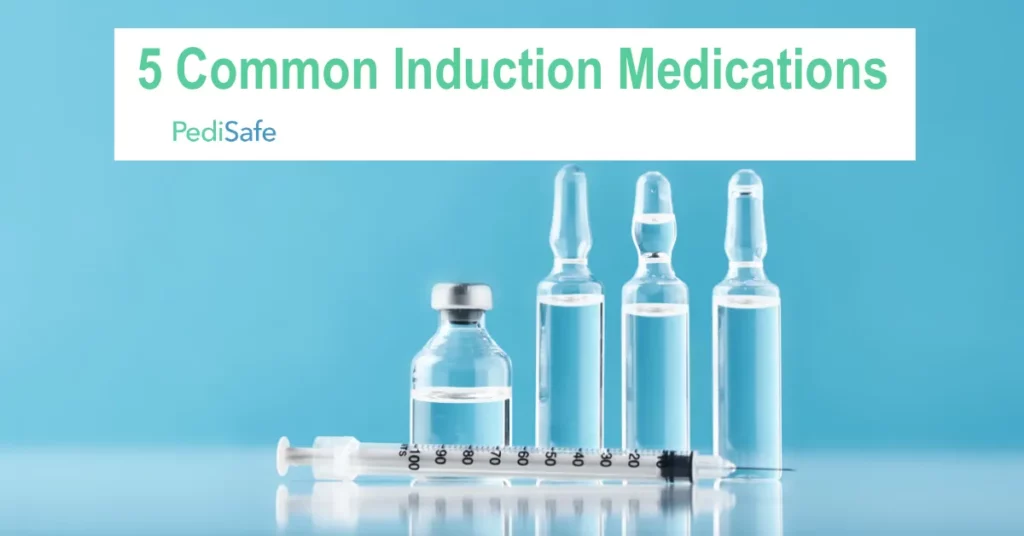Intravenous anesthesia induction agents are a group of fast-acting compounds that are used to induce a state of impaired awareness or complete sedation. The three most commonly used intravenous anesthetics include propofol, etomidate, and ketamine. Two additional agents (barbiturates), methohexital and thiopental, are less commonly used.
Propofol is the standard drug for induction of anesthesia and etomidate is most commonly used in cases of hemodynamic instability.
Ketamine plays a key role in emergency medicine because of its strong dissociative, sympathomimetic, and analgesic effects.
For more information on benzodiazepines and opioids , see the corresponding articles
The most common induction doses referenced in the literature for those agents are as follows.
| Medication | Indication | Characteristics | Dose |
|---|---|---|---|
| Propofol | -Default Induction medication -Default medication for TIVA | – no analgesic effects – respiratory depressant – caution in hypovolemic patients -Acts on GABA receptors in the reticular activating system -rapid bolus can result in profound hypotension. | -Pediatrics 3-15 years old: 2.5-3.0 mg/kg IV push -Adults with normal cardiovascular system: 2.0-2.5mg/kg IV push Adults with impaired cardiovascular system: 1.0-1.5mg/kg IV push |
| Etomidate | -Induction option in patients with hemodynamic instability | – Little to no effect on the CV system – Decrease in ICP -skeletal muscle myoclonic movements -adrenal suppression | 0.2 mg/kg IV push |
| Ketamine | – ER anesthesia for trauma | -sympathomimetic effects – dissociative anesthesia – increased ICP – psychotomimetic effects (hallucinations, vivid dreams) | -IV administration: 0.5-2.0 mg/kg (incremental) – IM administration: 4-5mg/kg (may repeat 2-5mg/kg in 15min ) – PO administration: 6-10mg/kg (once) |
| Methohexital | – IV induction for ECT procedures | – Decreased ICP and cerebral blood flow. – high lipid solubility – cytochrome P450 induction | Not commonly used in Peds 1-1.5mg / kg in adults |
| Thiopental | -IV induction agents | – not suited for IV infusions – caution in hypovolemia – anti-epileptic effects. | Pediatrics 1-12 yo: 5-6 mg/kg IV push Adults: 3-4 mg/kg IV push |
Add these doses under the Induction medications category in your PediSafe App.

